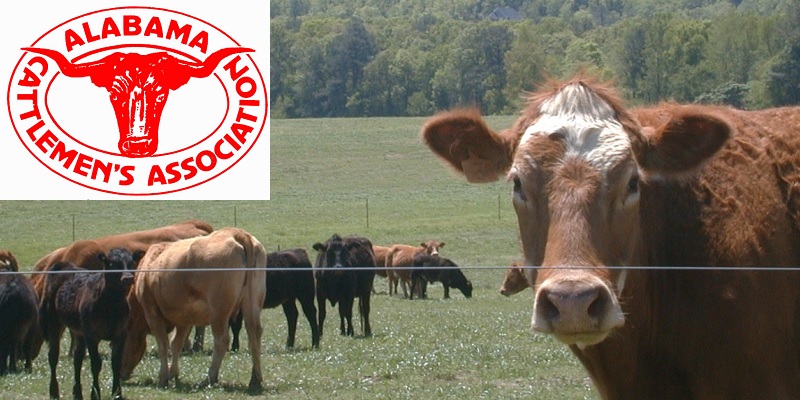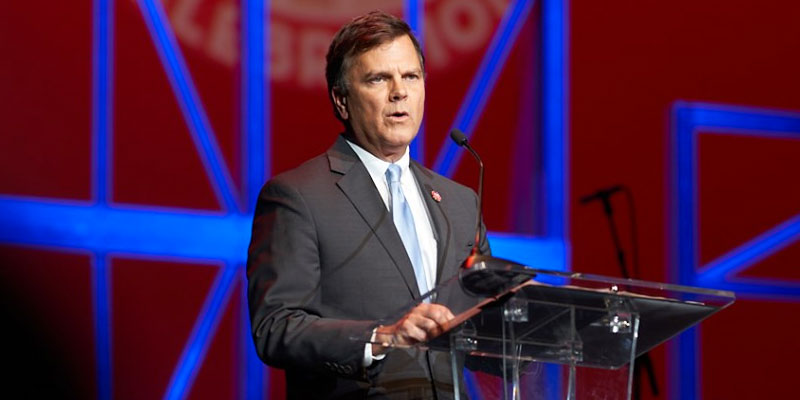The coronavirus pandemic has disrupted normal operations for nearly every industry, and agriculture is no exception. With those disruptions, there have been concerns about the nation’s food supply, especially as some retailers struggled to catch up with the demand amid the crisis.
Beef was no exception to the shortages, with many meat counters lacking their usual variety. However, the issue is not on the supply side of the equation, according to Alabama Cattlemen’s Association executive vice president Erin Beasley.
During an interview with Huntsville radio’s WVNN, Beasley explained how Alabama was at the beginning of the supply chain and declared that there is not a shortage of beef.
“[O]ur producers here in Alabama are really at the beginning of the chain,” she said. “They’re what we call cow-calf producers, so they heave herds of momma cows, and they produce a calf each year. And that calf is going to be sold when he gets to a certain weight — anywhere from 500-800 pounds, and that animal is then going to make its way through the growth process, probably stopping in at what we call a stocker operator, which utilizes a lot of grass to put weight on these animals, then ultimately at the feedlot where we finish cattle before they go to the processing plant. The whole cycle takes anywhere from 14-20 months. But we are at the beginning of the food chain.”
“We don’t have a shortage of beef in this country,” Beasley added. “Flatout, there is no shortage.”
Despite that, there have been difficulties and noted slowdown of the foodservice industry with the closures of many restaurants has changed where the demand lies.
“We have our own issues that we’re dealing with — there’s no doubt about it — to make sure the food chain stays working, and logistically we can get beef to the retail markets, which we’ve done a good job of so far,” Beasley stated.
“Some different things are starting to pop up,” she continued. “Some examples: Earlier in this process, a couple of weeks ago, our big concern was transportation because all of the foodservice entities were shutting down. Retail demand took a drastic spike. I think one week in March, we had a 77% increase in retail sales of beef, which is just astronomical. Transportation became a big deal, and logistics became a big deal because all of a sudden, you’re having to package beef not to go to foodservice but to all go to retail. So we got through that and now as this virus has gone on, some of the things we’re seeing — we have plants that are having to shift how they go about work because of illnesses within the employees. They are large plants that process a lot of cattle every day. Some of them will do 2,000 head of cattle a day across the country. So we’ve got some logistical issues there.”
She acknowledged some limited disruptions for stockyards but added that in the short-term, Alabama’s stockyards would be back at 100%.
“[W]ith stockyards here, we have seen a little change-up in how cattle are moving right now,” Beasley said. “The spring run for us are not typically the largest run. We’re a fall run state. So, our stockyards are having lighter loads of cattle coming through. We did have some close last week, just to take a week off and let things kind of simmer down a little bit. That was more of a cattle market issue just with pricing than anything. It had nothing to do with demand or anything.”
“We just continue to work through each issue that comes about,” she said. “All the stockyards are back operating this week, for the most part. I think by next week, we’ll have 100% of them operating. They’ve had to implement some different procedures to limit crowd size and to just take into account the health of their buyers and their employees, and everybody else that is involved in the process — those that are selling cattle as well.”
According to Beasley, foodservice drop-off has also impacted the market as to what cuts of beef are in demand and what is not. She estimates nearly 60% of demand came from foodservice, noting that foodservice demand was for the higher-end middle cuts (rib, loin and sirloin) and the retail demand was for end cuts (ground beef). Given this evolving element under the current circumstances, Beasley said it would take time for prices to reflect the current market. However, she insists supply is not an issue.
“At the end of the day, the consumers need to know there’s absolutely no shortage of beef, and we’re trying our darndest to get it on the truck and get it to stores as quick as we can,” she said. “That’s just a logistical thing, and we’re going to continue to work through it.”
Beasley added that her concern was to help producers as much as possible, given the “dramatic” fall of prices in the last few weeks.
“There’s plenty of beef,” she advised. “The safety concern — we’re still inspecting beef just like we always have. We’re still packaging, transporting, and getting beef to the shelves from a safety standpoint the same way we did before COVID-19. The consumer that is going to the store to buy our product — thank you first of all for buying our product. Second, just know you are feeding your family a safe, nutritious meal. Beef is a wonderful power protein, as I call it. And there’s absolutely no concern of safety, even though this virus is affecting all us like it is. From a food standpoint, we just don’t see that issue.”
@Jeff_Poor is a graduate of Auburn University and the University of South Alabama, the editor of Breitbart TV, a columnist for Mobile’s Lagniappe Weekly and host of Huntsville’s “The Jeff Poor Show” from 2-5 p.m. on WVNN.













